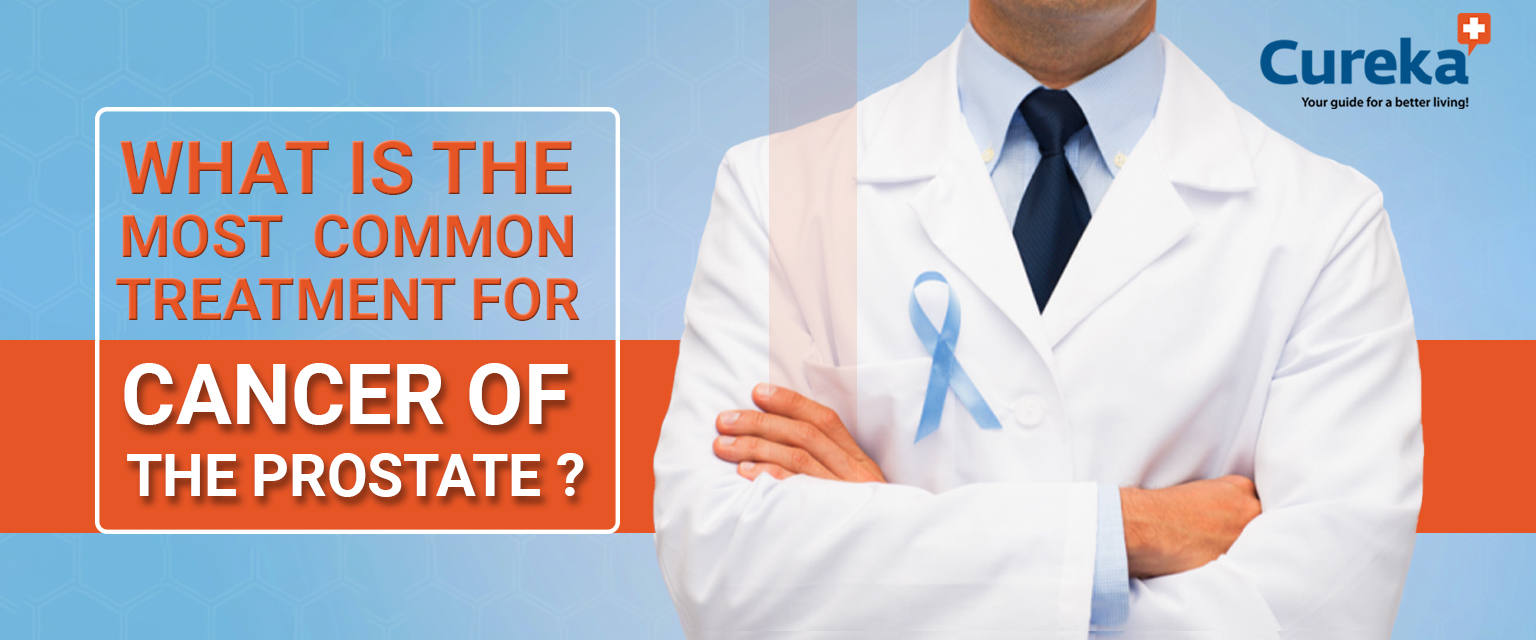What Is The Most Common Treatment For Cancer Of The Prostate?
Prostate cancer is amongst the most general cancer types in men. This generally affects men during the age of 60s, however, is now increasingly diagnosed in men of younger age groups.
The most common problems that come in the gland comprise prostate cancer or benign (non-cancerous) enlargement. Other risk factors consist of older age, obesity, and family history.
Prostate cancer increases slowly and primarily remain limited to one organ. Though in many cases, quick growth is seen and it can spread rapidly to other body parts.
Early detection helps patients to select from different treatment options, having outstanding results. Prostate cancer treatment needs a group of specialists from Medical, Uro-Oncology, and Radiation, who are associated with international standard protocols.
Prostate Cancer Symptoms
The most common symptoms of prostate cancer include:
- Blood discharge in semen
- Bone pain
- Uneasiness in pelvic area
- Erectile dysfunction
- Reduced force in the urine stream
- Trouble in urinating
Getting any of the symptoms doesn’t suggest it is diagnosed as a cancer, however, if they get noticed for over two weeks at that time, you must consult a doctor.
In a lot of cases, the prostate cancer shows no symptoms until it reaches an advanced stage. So regular checking with DRE (Digital Rectal Exam) as well as PSA (Prostate-Specific Antigen) test is suggested.
Higher PSA levels could be a sign of infection, inflammation cancer, or non-cancerous enlargements. Trans Rectal Ultrasound can be done for more diagnosis.
All the biopsied tissues are studied to increase the grades of prostate cancer. CT, MRI, bone scan or PET CT trailed by Biopsy is done for confirming the diagnosis. Men diagnosed having early-stage prostate cancer might not need treatment straight away. Only effective surveillance is needed in some cases.
Risk Factors of Prostate Cancer
Family history: Having a father or brother with prostate cancer may double a man’s risk, especially if that relative was diagnosed before age 55. Being born with a gene mutation is one of the unavoidable risks of prostate cancer.
Prostatic intraepithelial neoplasia (PIN): PIN is a condition in which prostate gland cells look abnormal when examined with a microscope. This does not show any symptoms but diagnosed before age 50.
Smoking : Smoking negatively affects every cell in the body, including those found in the prostate gland. Smoking raises the risk of more aggressive prostate cancer and recurrent cancer, and also increases the chances of dying from prostate cancer.
How to Prevent Prostate Cancer?
Eat a healthy diet and maintain healthy weight. Include healthy fats like omega 3 from fatty fish and olive oil. Consume citrus fruits and foods that are rich in antioxidant lycopene like tomatoes, watermelon etc. Eating fresh fruit is an important part of a balanced diet. It’s also possible that it may lower your risk of prostate cancer. Isoflavones reduces the risk of prostate cancer. They are found in large amounts in lentils, soya, chickpeas and peanuts. Limit fat intake. Include folate rich foods like green vegetables, beans and whole grains. It is also important to note that having overweight or obesity can have a negative effect if you’ve already been diagnosed with prostate cancer. So exercise regularly.
Medications:
Some drugs might help reduce the risk of prostate cancer.
5-alpha reductase is an enzyme in the body that changes testosterone into dihydrotestosterone (DHT), the main hormone that causes the prostate to grow. Drugs called 5-alpha reductase inhibitors, such as finasteride and dutasteride , block this enzyme from making DHT. These drugs are used to treat benign prostatic hyperplasia (BPH), a non-cancerous growth of the prostate. These drugs can cause sexual side effects such as lowered sexual desire and erectile dysfunction (impotence), as well as the growth of breast tissue in some men. But they can help with urinary problems from BPH such as trouble urinating and leaking urine (incontinence). These drugs aren’t approved by the FDA specifically to prevent prostate cancer. Still, men who want to know more about these drugs should discuss them with their doctors to decide on what is best for them.
Prostate Cancer Treatment
Different treatment options for prostate cancer include Radical Prostatectomy (surgery) or Radiation Therapy, cryosurgery and cancer therapy.
Cryosurgery : This treatment uses very cold gas to freeze and kill cancer cells. Side effects include blood in your urine, bladder and bowel problems, and trouble getting an erection.
Radical Prostatectomy for prostate cancer comprises removing your prostate gland, a few surrounding tissues, as well as some lymph nodes.
Radical Prostatectomy robotic surgery allows a surgeon in making more accurate movements using surgical tools compared to customary open or nominally invasive surgery.
Radiation Therapy could be offered either by any linear accelerator to accurately target the tumor or by using Brachytherapy that involves placing different rice-sized radioactive seeds in prostate tissues, providing a lower dose of radiation in a long time.
Radiotherapy could also be delivered with advanced Proton Therapy that can nearly eliminate all the long-term side effects of radiation therapy including sexual dysfunction and urinary incontinence.
It decreases radiation to the bladder by almost 60% as well as also minimizes the risks of secondary cancers by nearly 50%. Some patients may additionally need Hormone therapy, either for shorter or longer courses.
Hormone therapy: Male hormones like testosterone can make prostate cancer cells grow. If your doctor thinks your disease could come back after surgery, you might get therapy to stop your body from making those substances. Another type of hormone therapy prevents cancer cells from receiving testosterone. You might get it along with radiation treatments. Side effects can include a lower sex drive, erection problems, and bone thinning.
The Most Common Treatment for Cancer of the Prostate
Well, you can say that healthcare experts use either Radical Prostatectomy (surgery) or Radiation Therapy or individually any of these two, whichever is suitable for the patient as per his condition. A holistic approach of an Oncology team is the finest way of fighting against prostate cancer.











